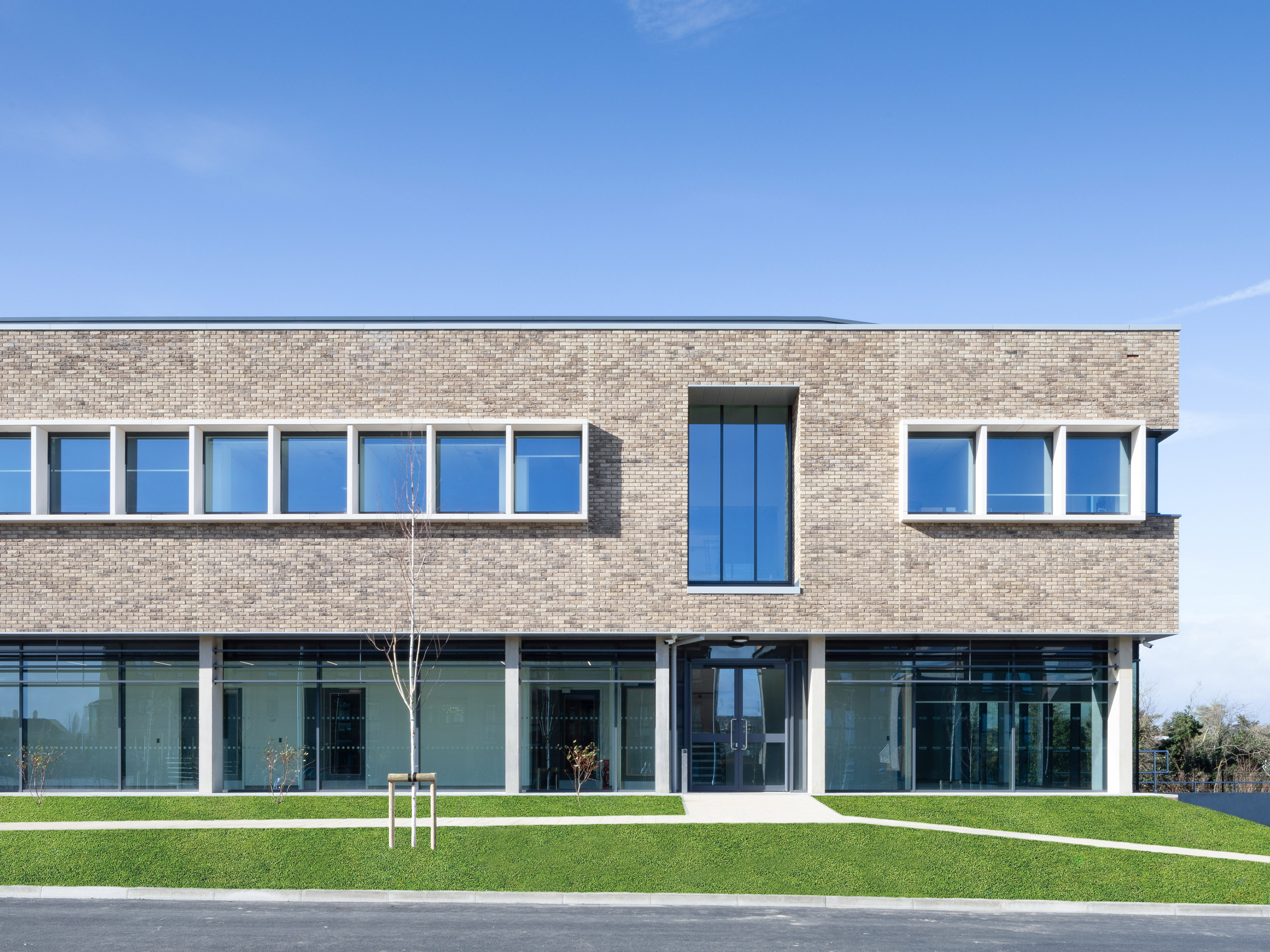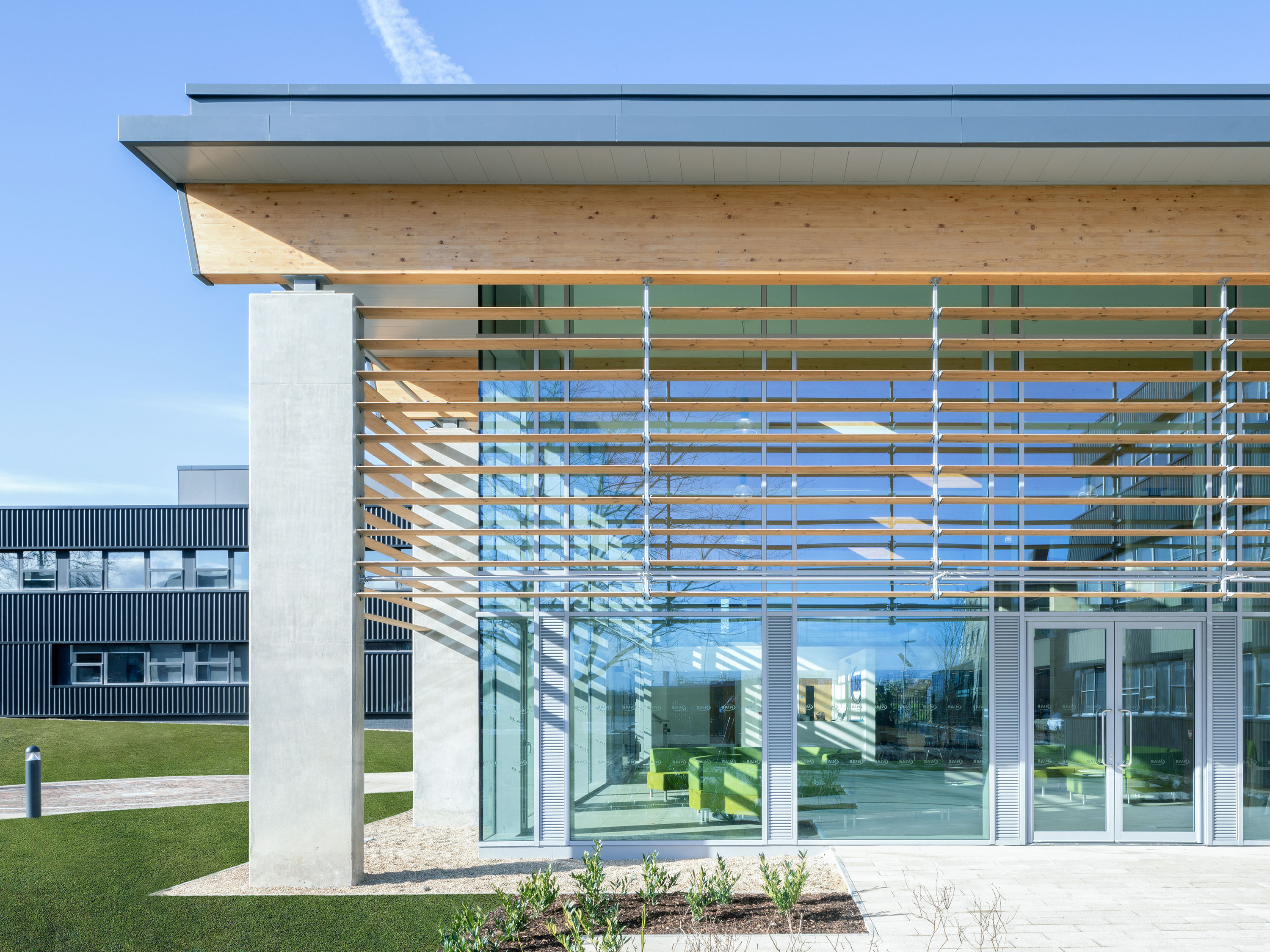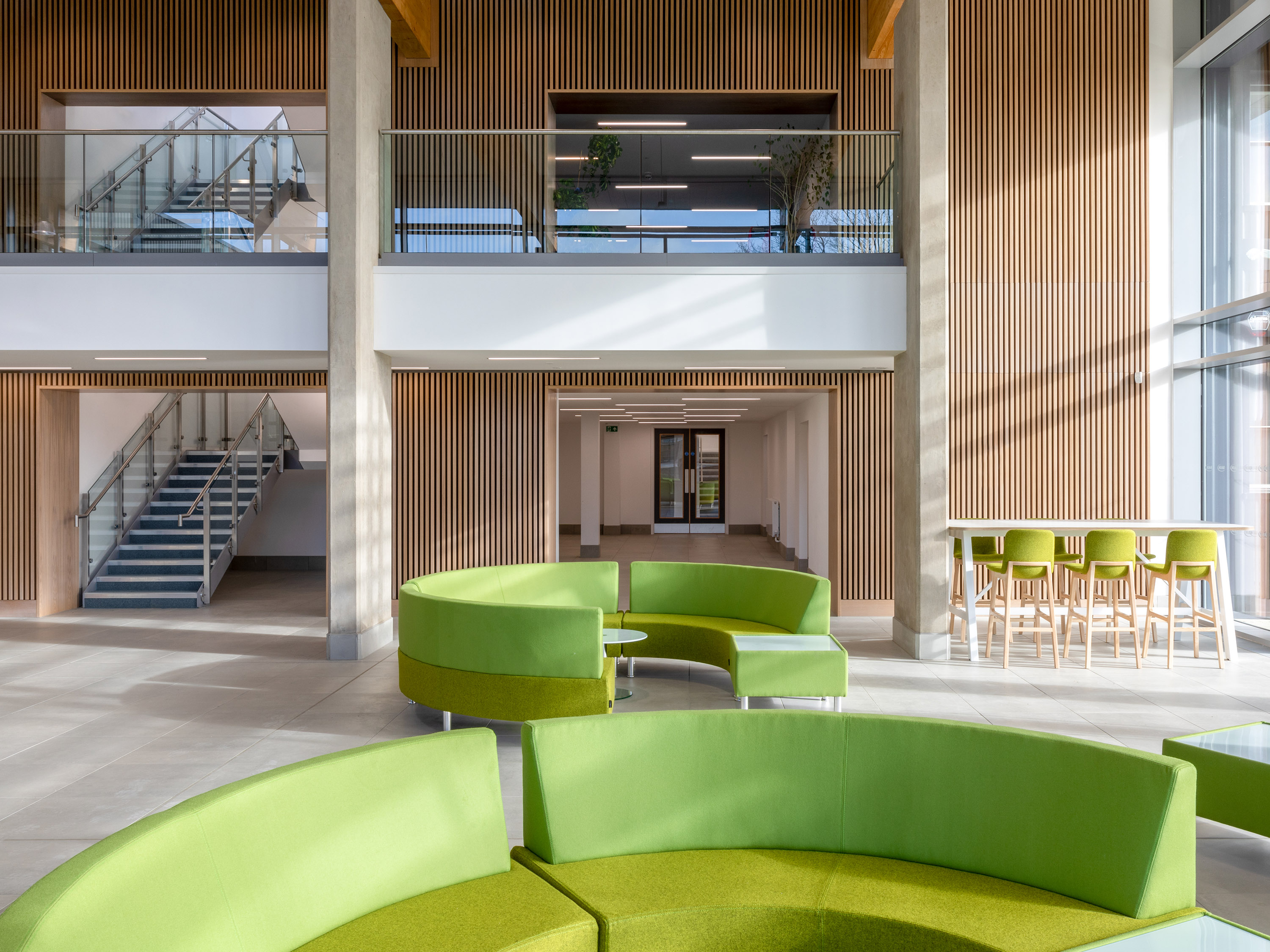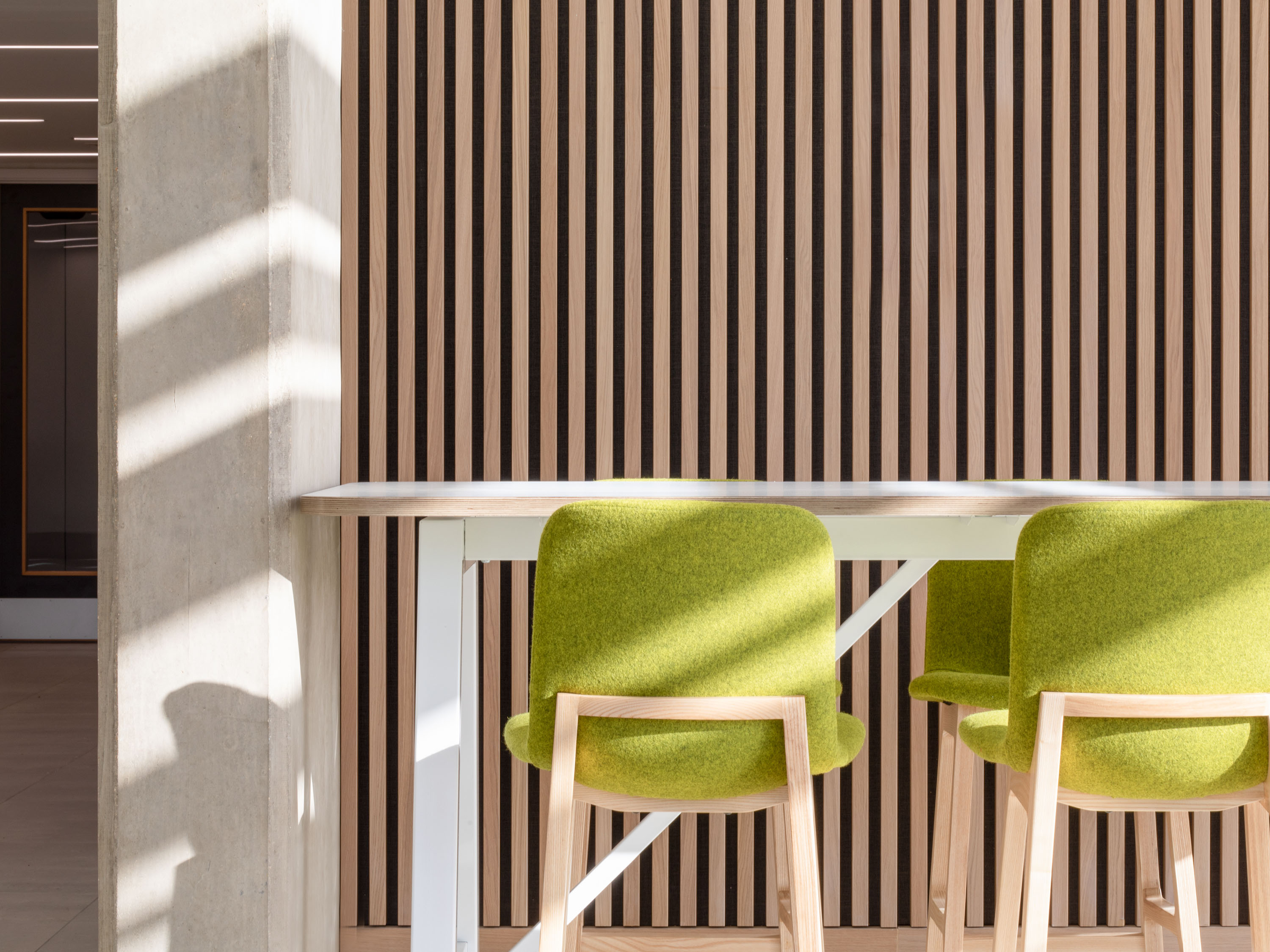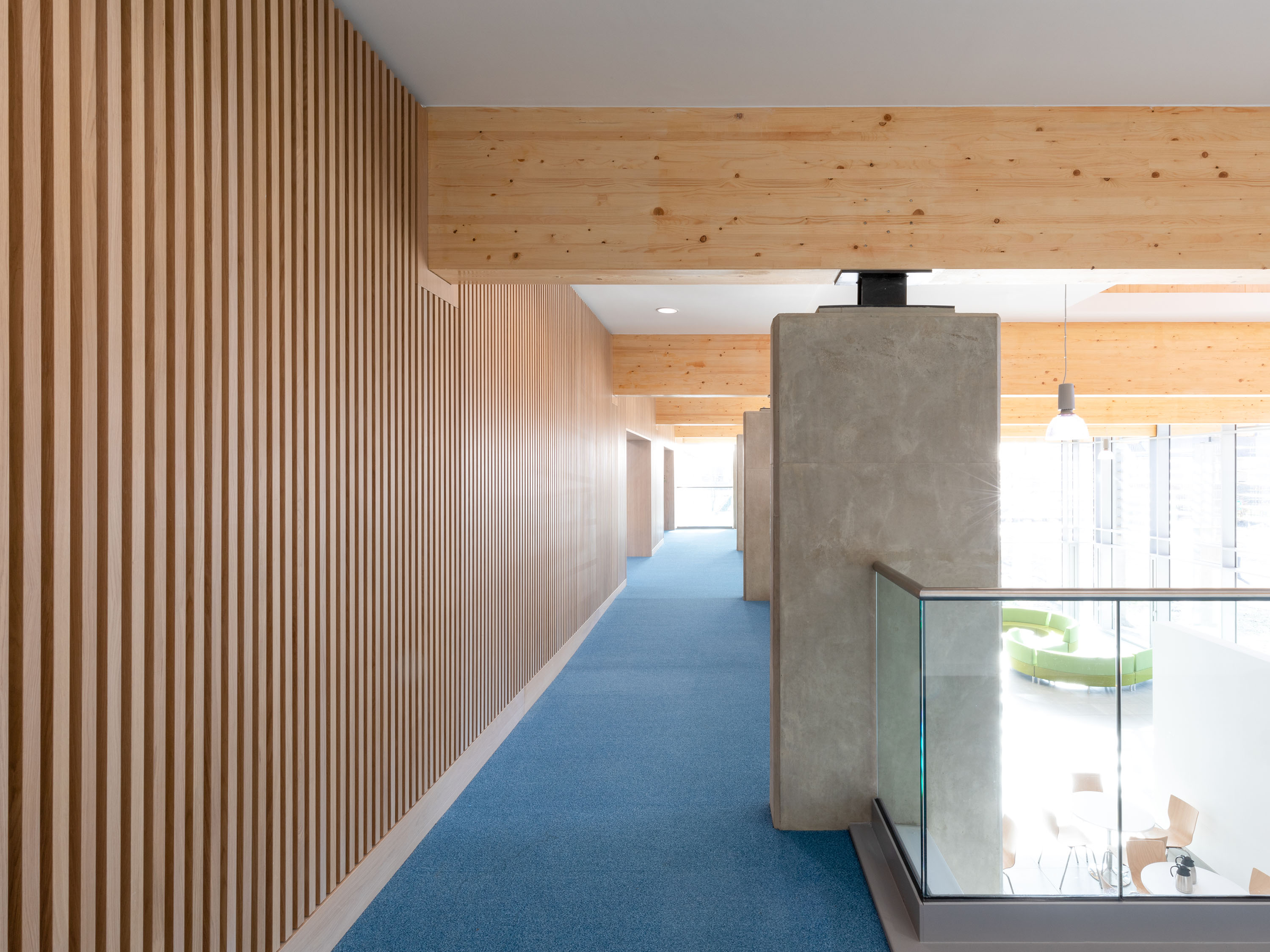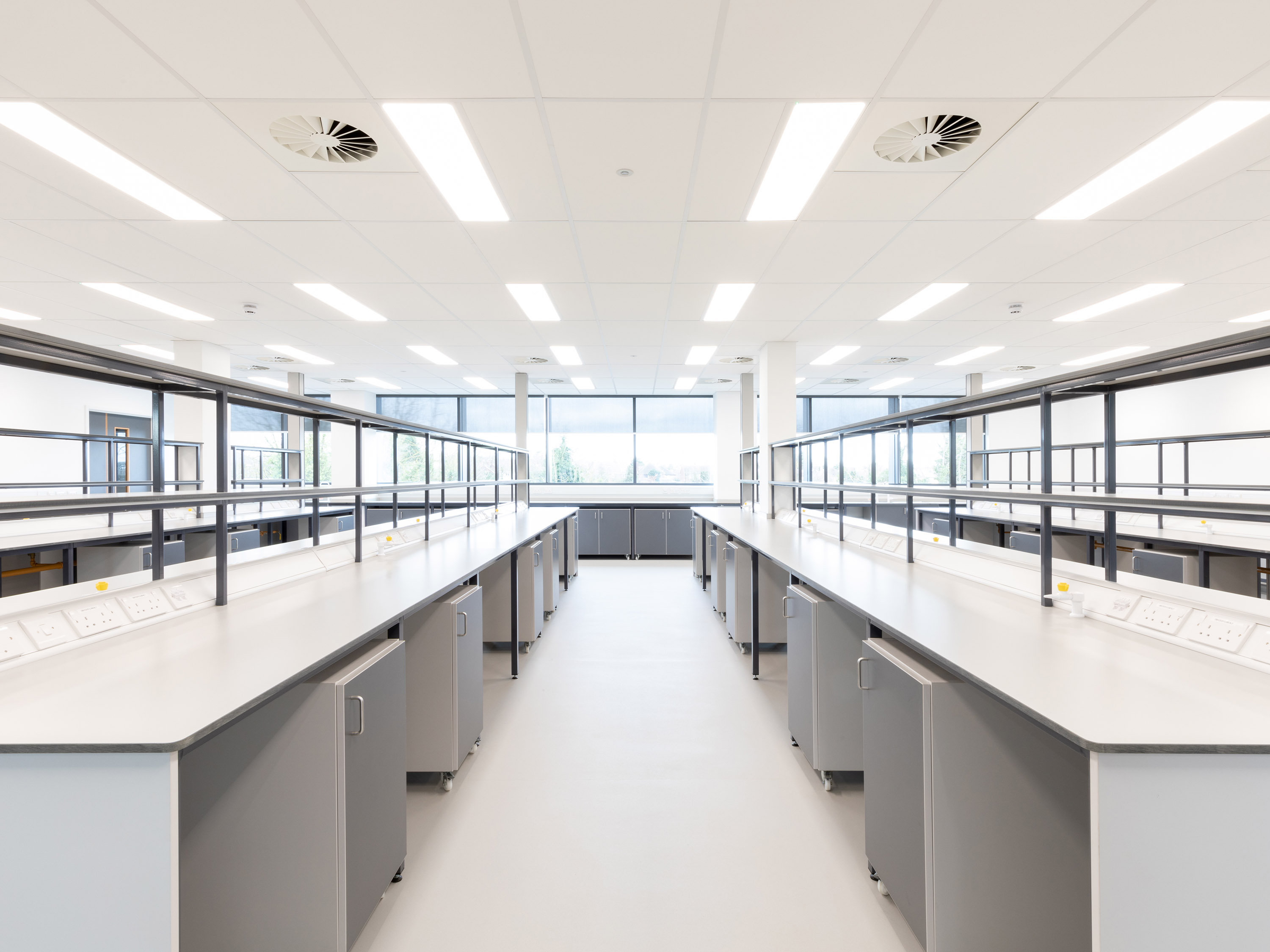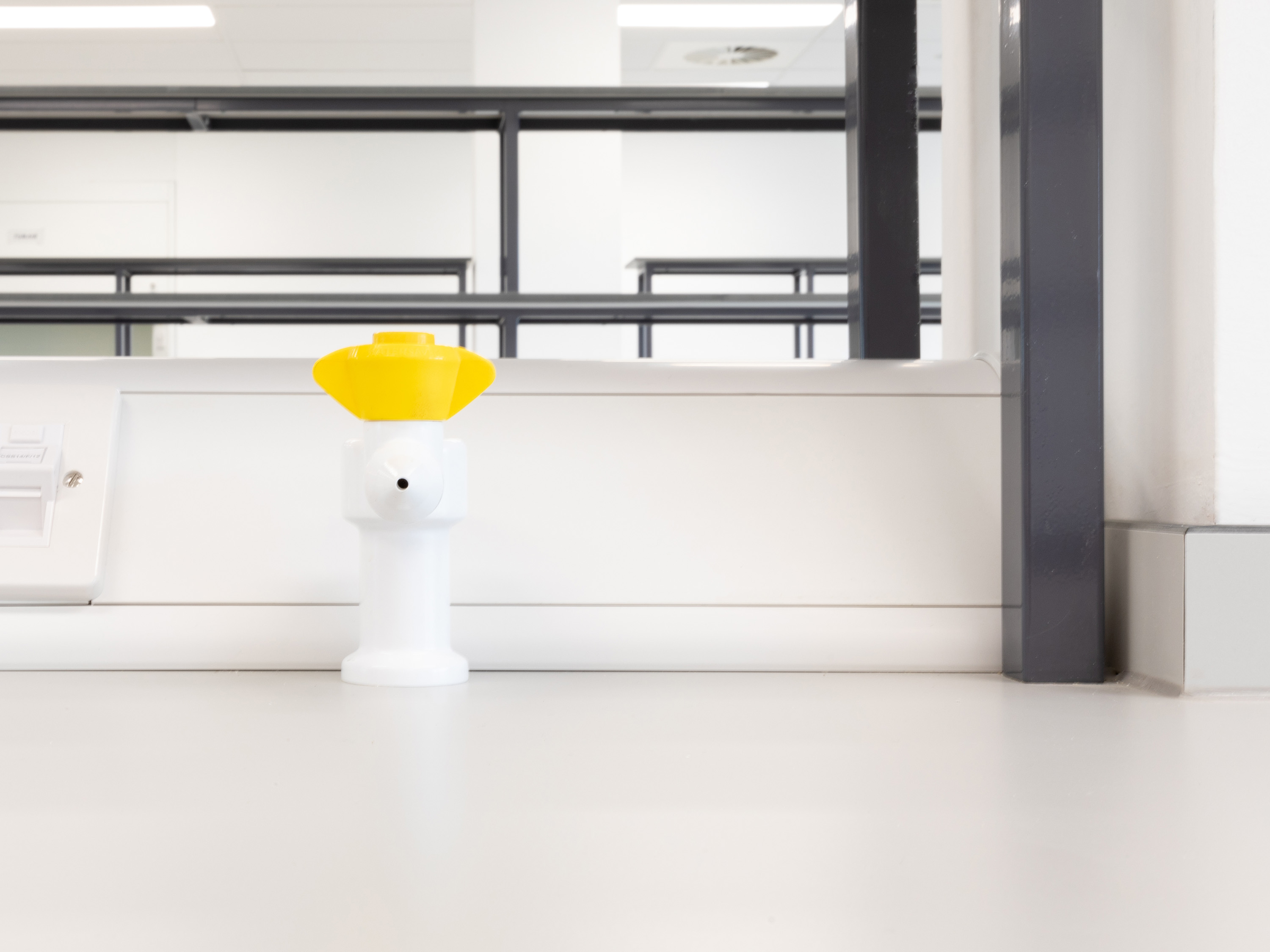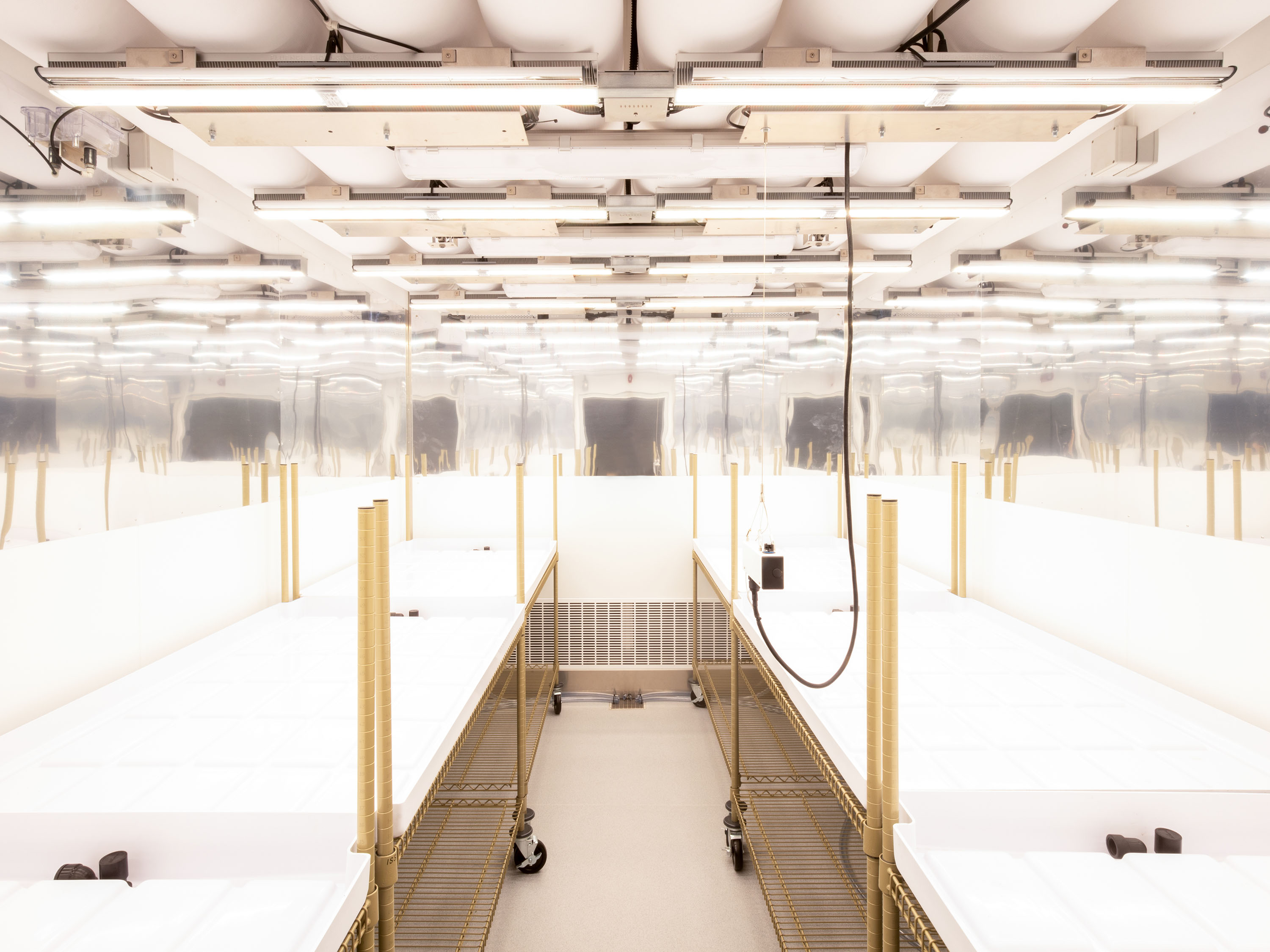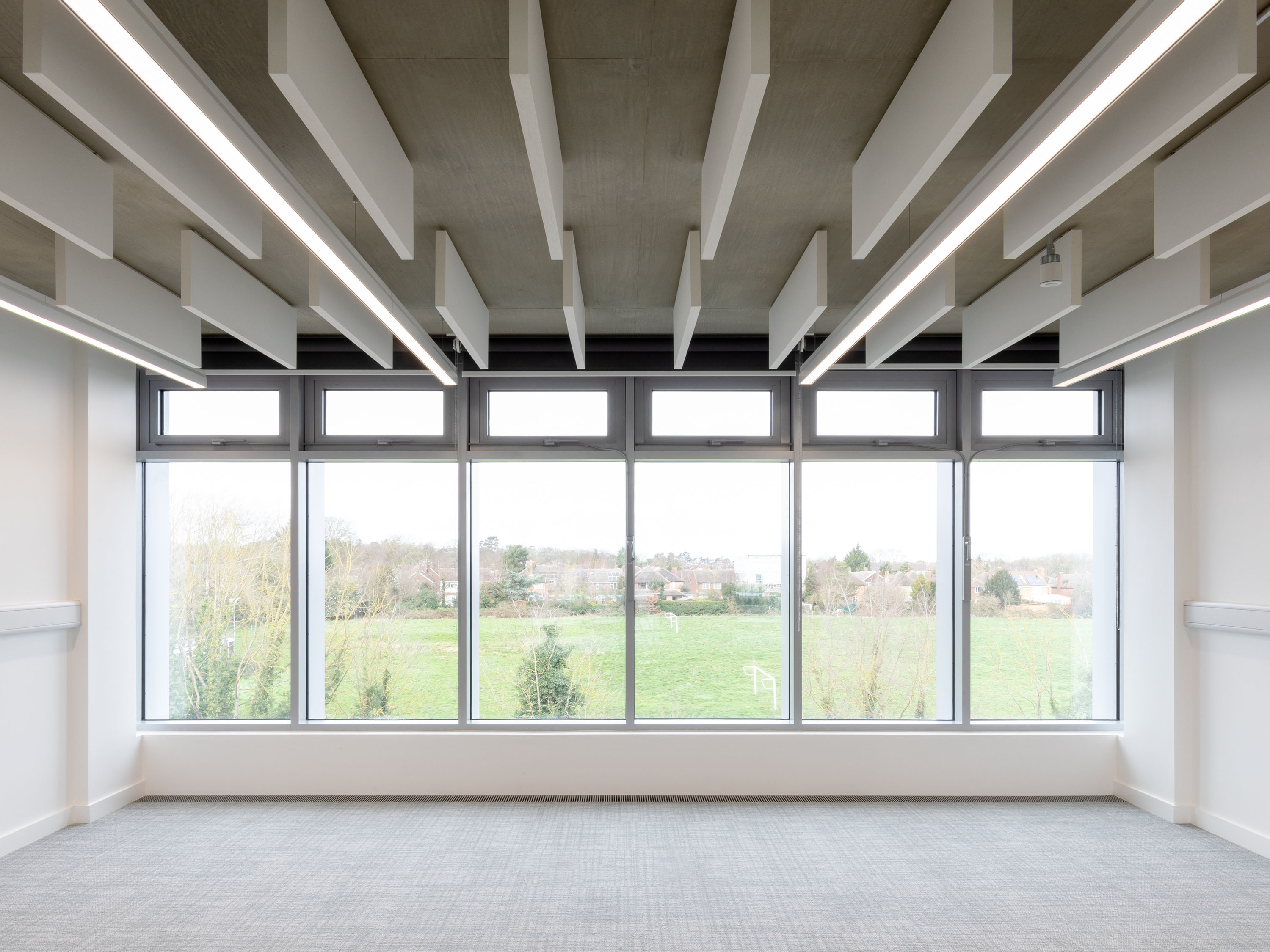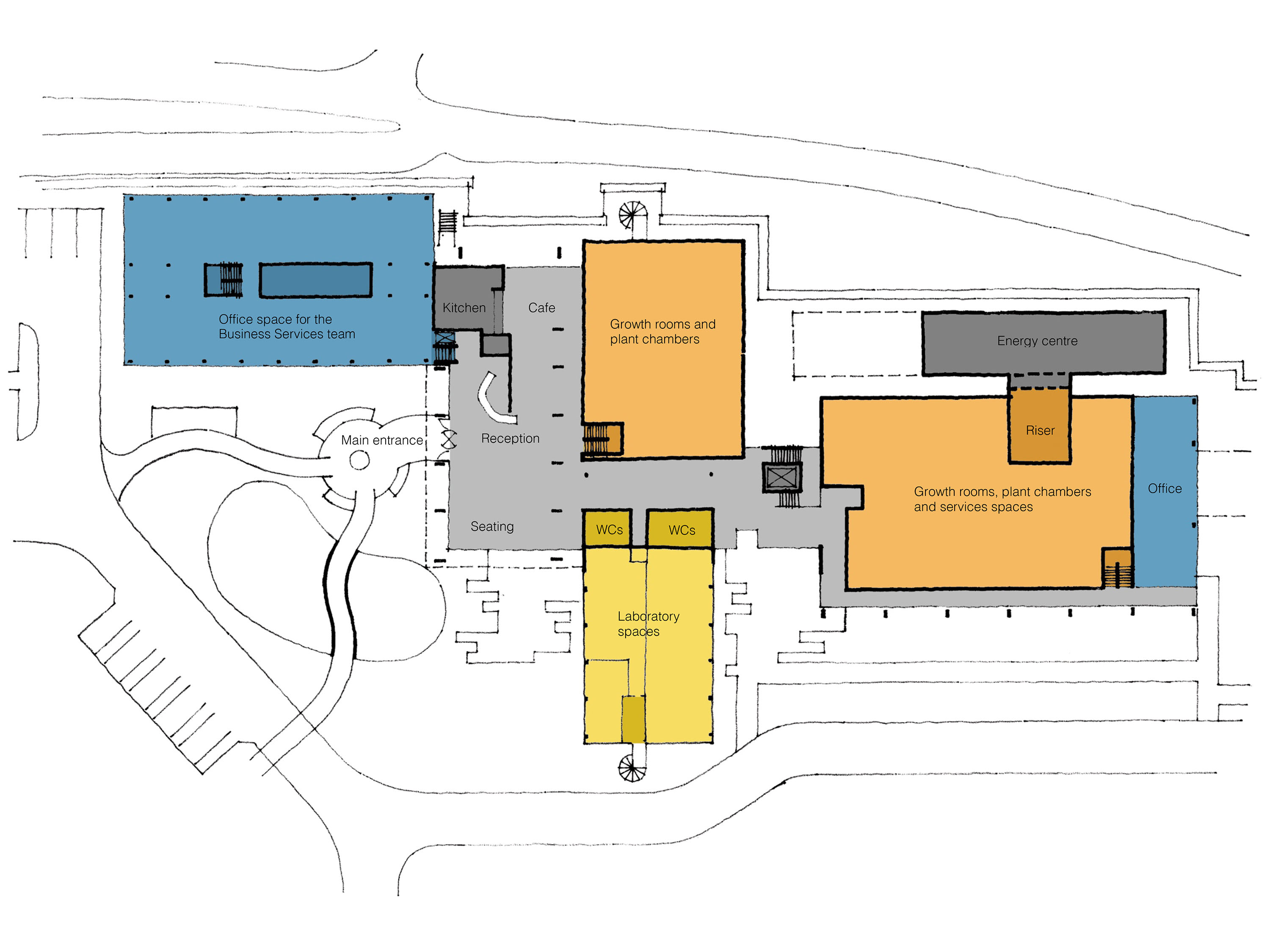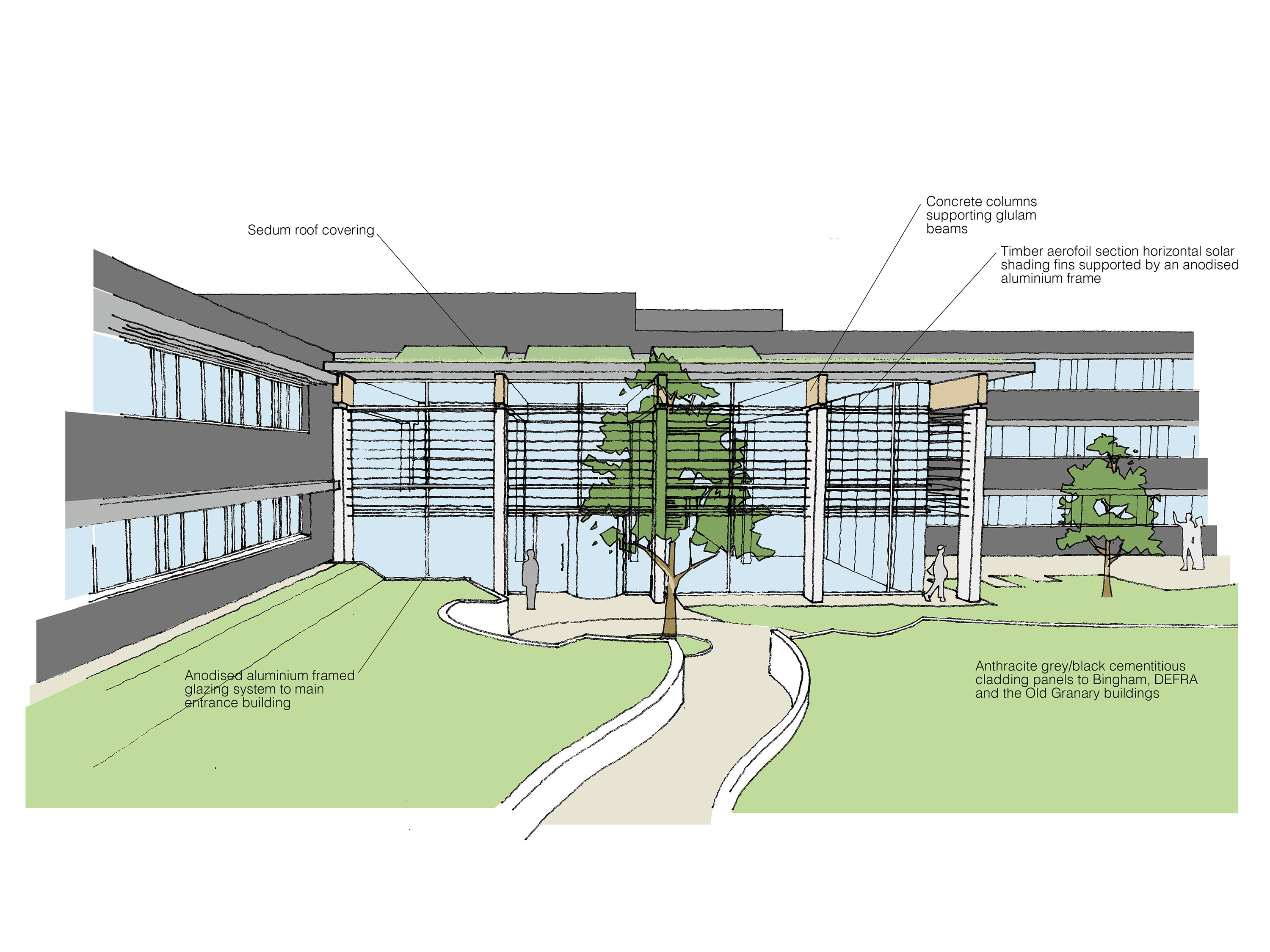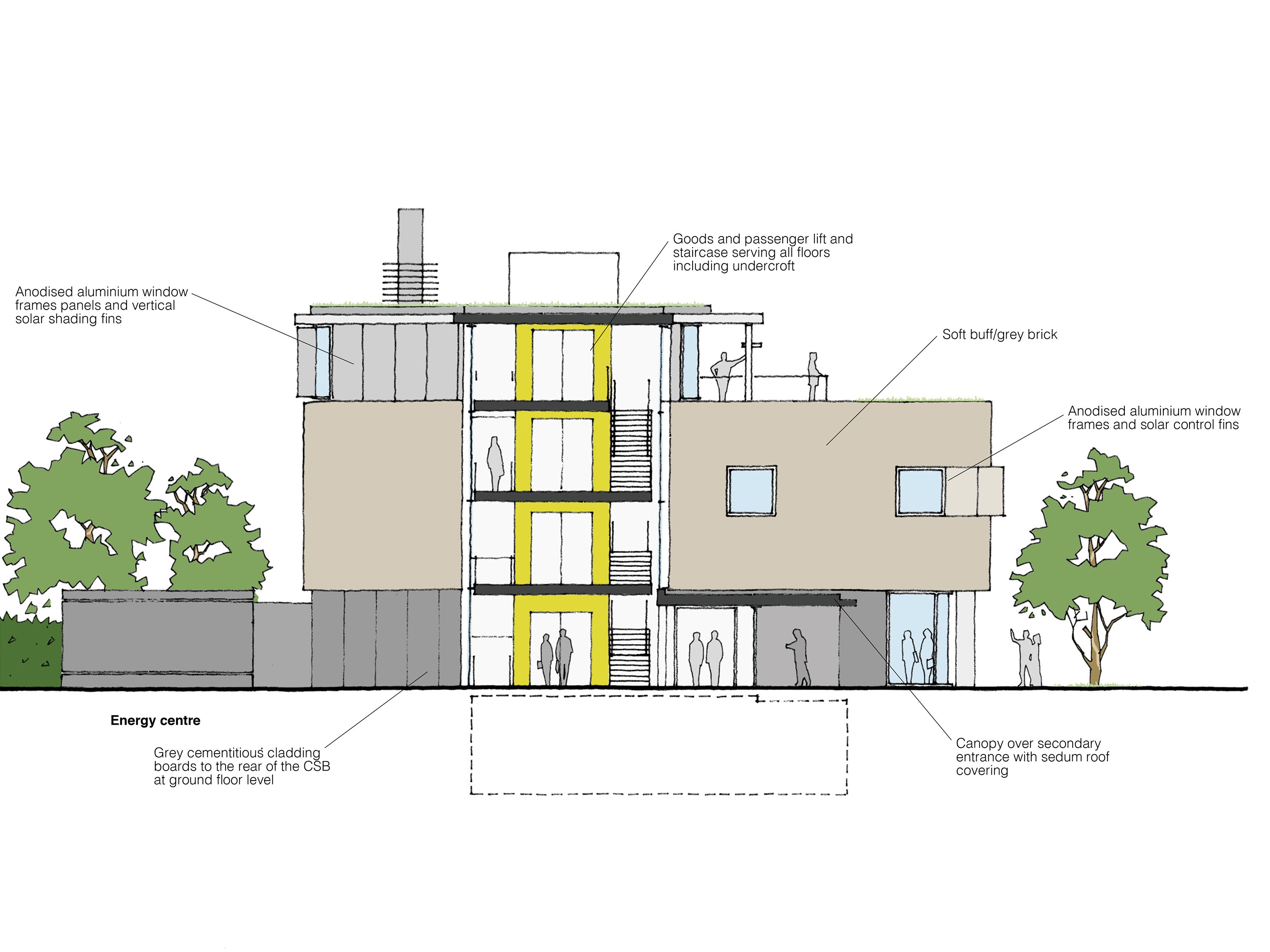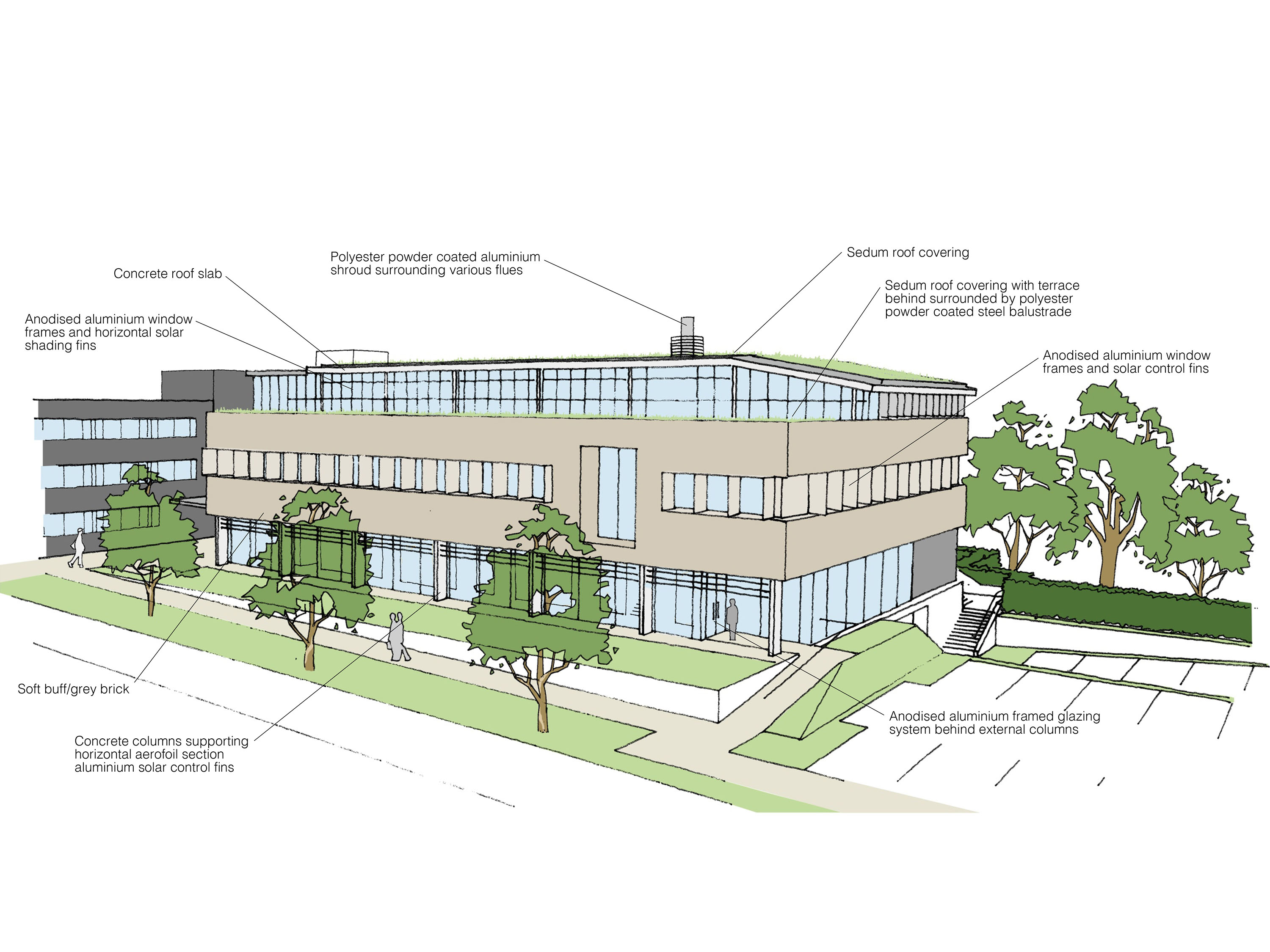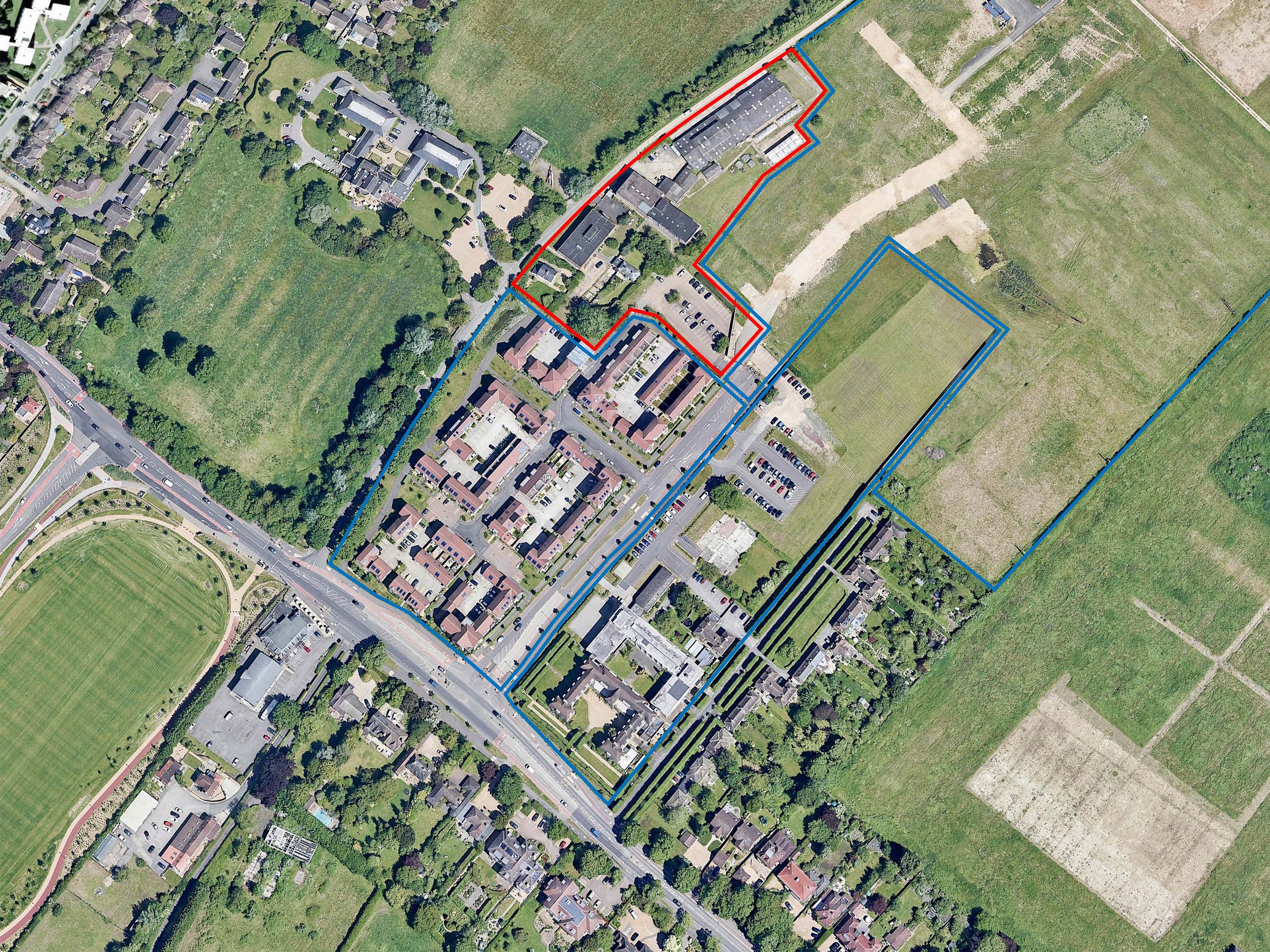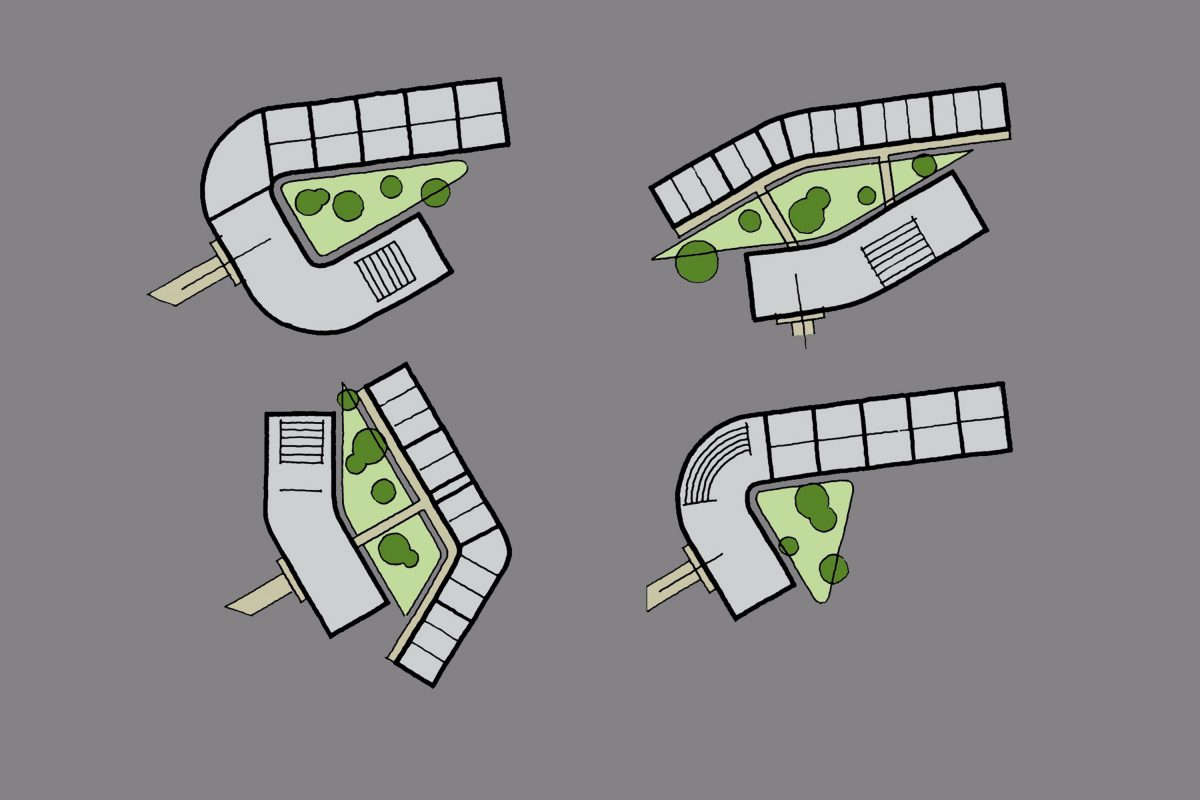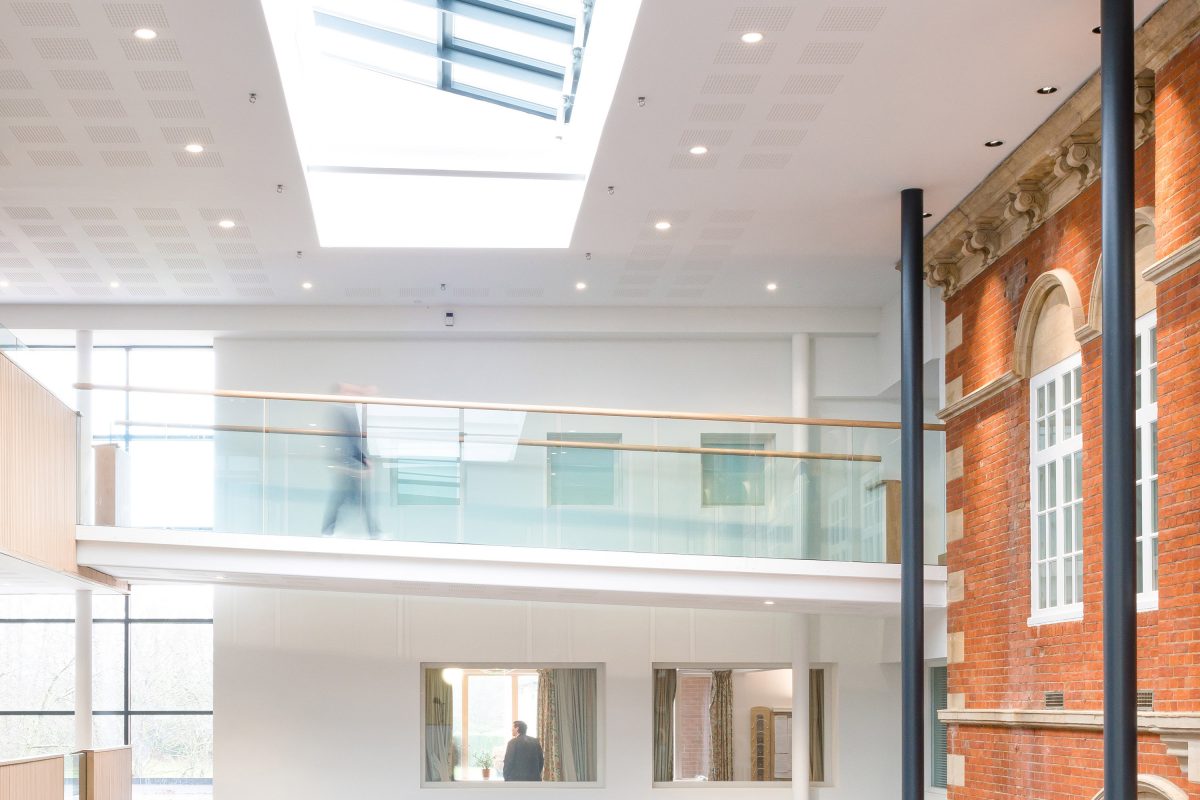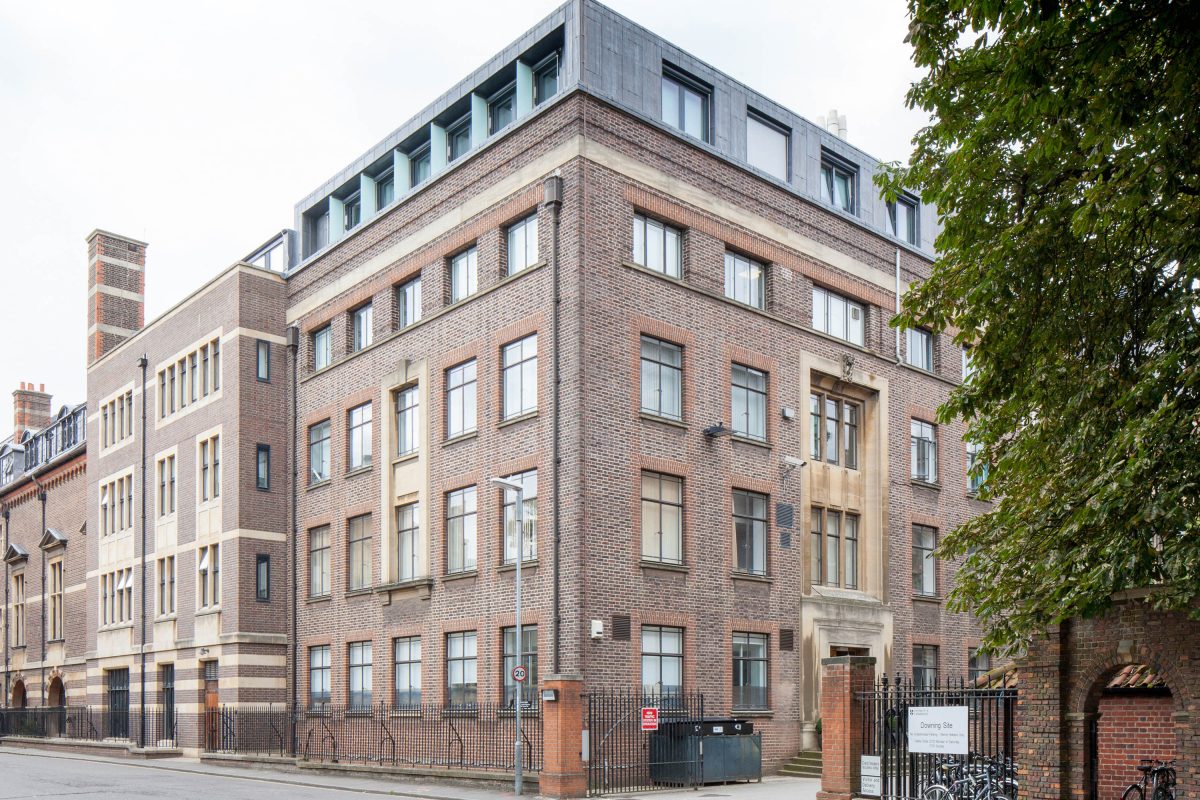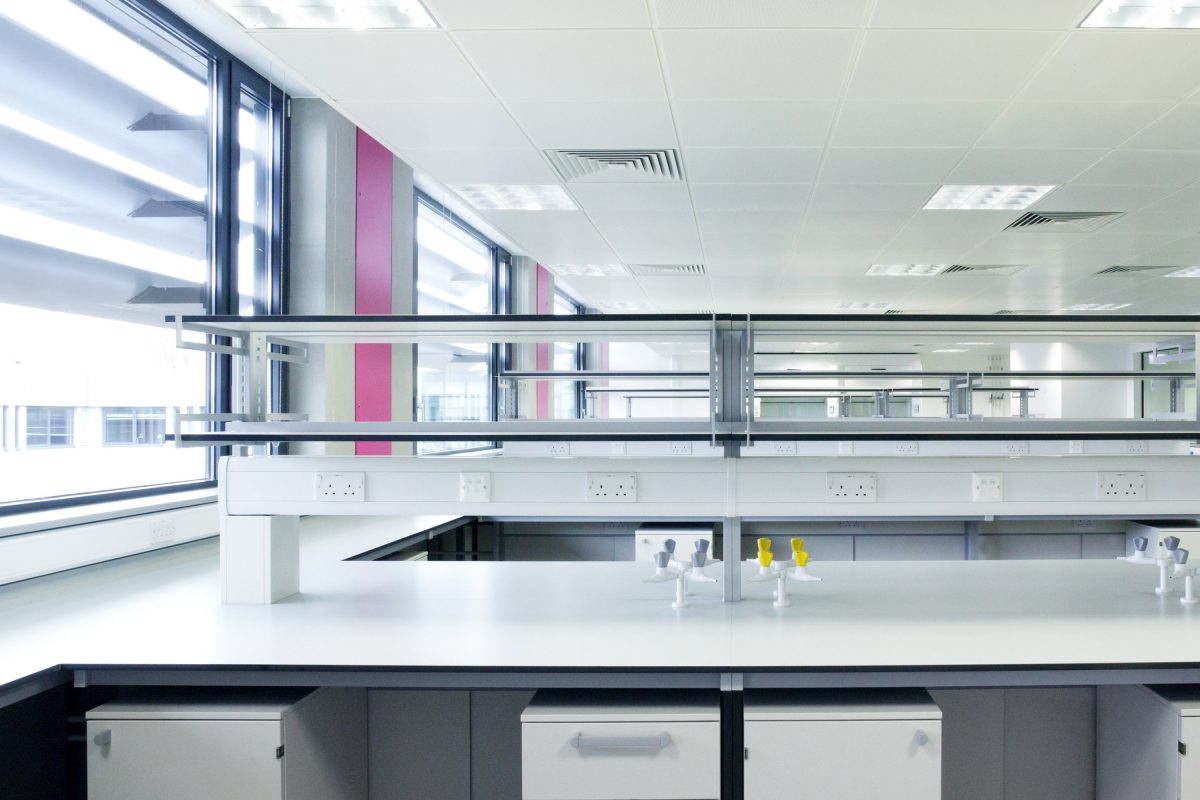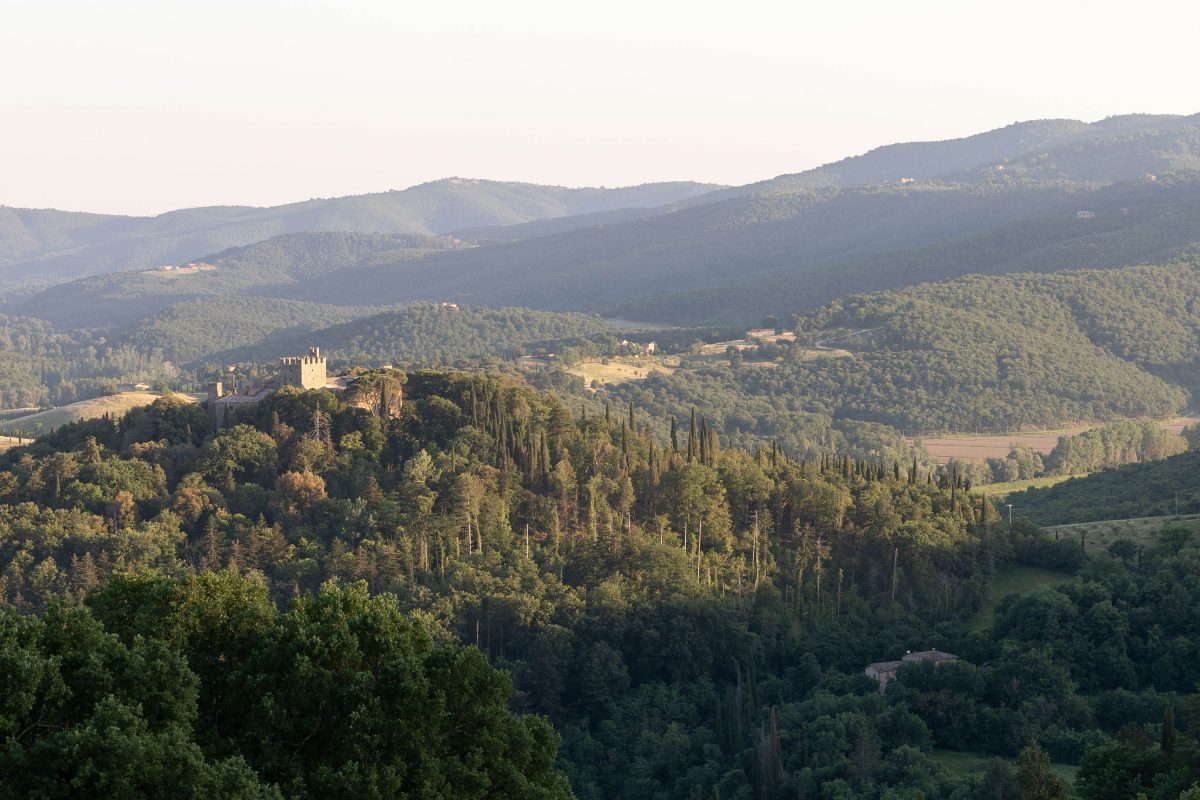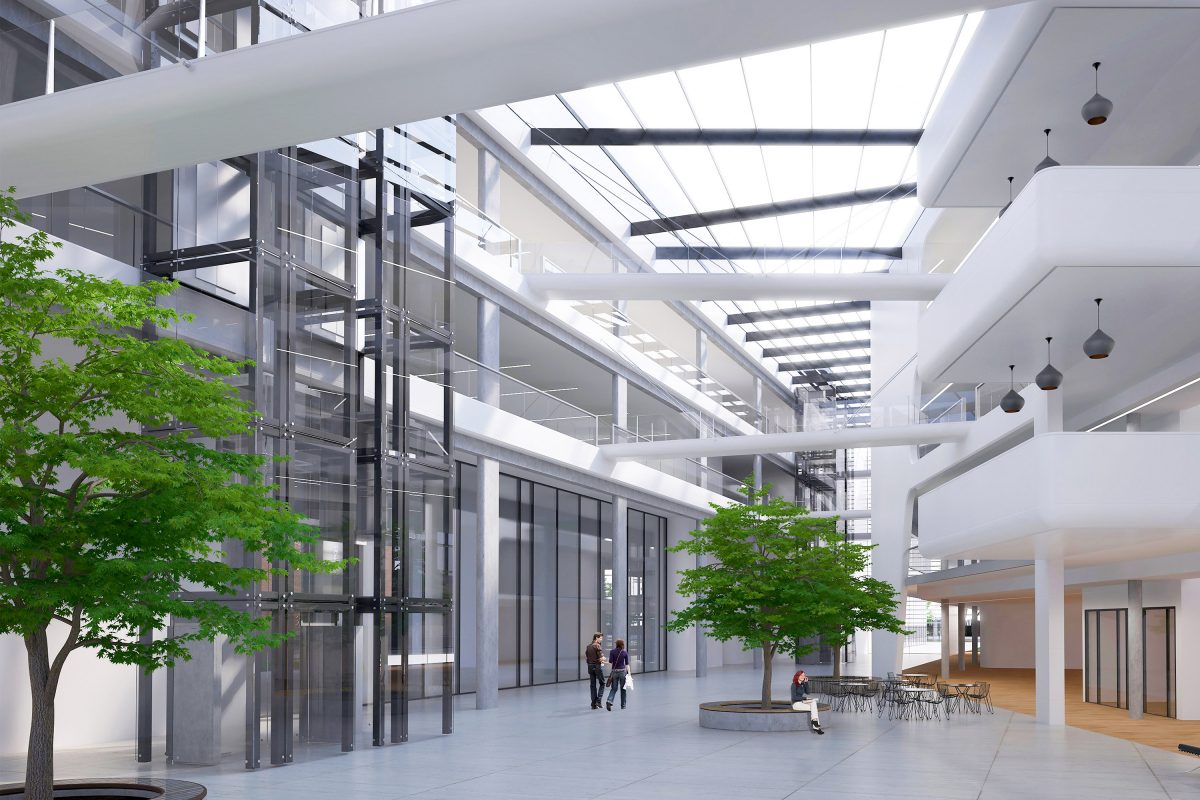Cambridge, UK
NIAB UK Headquarters
The National Institute of Agricultural Botany have resided on a site just to the north-west of Cambridge since their formation in 1919. Originally accommodating glasshouses, trial beds and a granary, the site has seen some significant change, particularly in recent years following land sales to developers for much needed new housing for the city.
Over the same period, NIAB have grown significantly through a strategic programme of investment, merger, and acquisition, and as its centenary year approached the Institute focused on plans to consolidate their Cambridge sites.
After reviewing a range of options for their headquarters operations, NIAB decided to consolidate on a site running along Whitehouse Lane and vacate their original main building. The proposed site already accommodates several of NIAB’s groups, and so a careful analysis was required to look at how teams could be decanted to ensure business operations were not disrupted through the construction works.
The scheme, which retains three existing buildings refurbished to provide office and laboratory space and two new buildings, was praised by the Cambridge City planning team for its carefully considered scale, massing, and the high quality of its design.
The new Bingham campus provides over 6,300m2 of research space. A new entrance building acts as a central hub incorporating a cafe, a variety of meeting spaces, and enjoys a strong connection with the garden spaces that surround it. The new laboratory building provides state-of-the-art research facilities for the Cambridge Centre for Crop Science, a joint venture between NIAB and the University of Cambridge, with growth rooms, open-plan laboratory spaces, specialist equipment rooms and a rooftop office suite. The landscape proposals seek to really engage with the spaces around the site and include an important section of the orbital cycleway to link Cambridge with the nearby village of Histon.
“The need to produce sufficient healthy nutritious food without harming the environment is at the top of the agenda for international plant scientists. The Cambridge Centre for Crop Science, our alliance with the University of Cambridge, will provide state-of-the-art research laboratories and present an extraordinary opportunity to impact this agenda through the development of world-class science and translation.”
Dr Tina Barsby OBE
Chief Executive Officer, National Institute of Agricultural Botany

